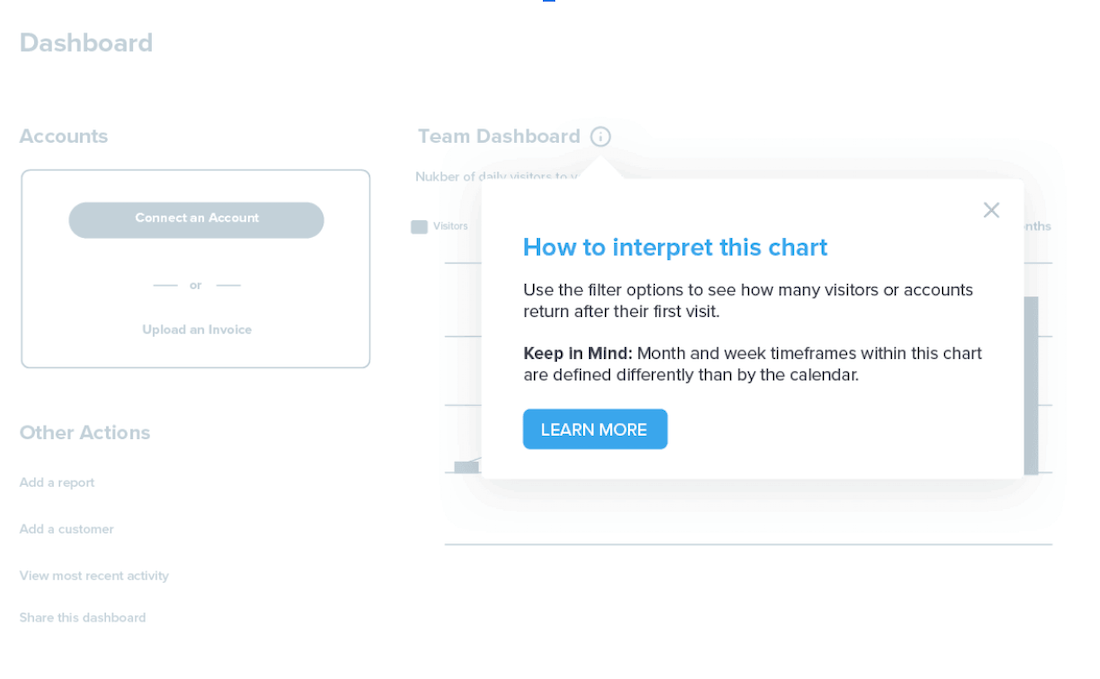Scoping out a new product initiative can be a huge challenge. The average person makes around 35,000 decisions each day, and product leaders probably make even more. After all, your product can go in thousands of different directions. Should you tackle the most requested feature set? Eliminate technical debt? Build the next feature on your product roadmap? With equally viable options on the table, you may find yourself overwhelmed by making the call.
Product development commonly follows a consistent process: identify problems, scope a solution, launch, and continuously iterate. But too much time focused on the wrong problems or on iteration can waste valuable resources and your customers’ patience.
How can you be sure you’re making the correct choice? To make decisions with confidence, product leaders must adopt a customer-first mindset, make decisions grounded in data, and favor iteration over a big unveiling. Let’s go through each of these in turn.
Customer-first mindset
It’s in your best interest to deliver what customers want. Though your feature may be properly scoped, tasked, and launched, your customers are the ones who ultimately determine whether it’s a success or failure. Once you’ve put your latest and greatest into market, you’ll quickly hear from your most active customers. Will they say it wowed, disappointed—or worse yet—went unnoticed and unadopted?
You don’t need to be a mind-reader to know what your customers want. The answer will be right in front of you … if you have the right technology in place to see the answer. First, you’ll need to gather a clear understanding of who your customers are, how they prefer to engage with you, and what they’re already doing in your product. This complete view of your customers’ in-product lives is typically spread between multiple tools. Likely, these include a support tool like Zendesk, a product analytics platform like Pendo, and a CRM like Salesforce. To make it usable, you’ll need the right underlying data platform that reliably collects all of your data and brings it into these various systems.
For example, when the product team at Imperfect Foods wanted to improve retention, they took a closer look at the customer experience. They hypothesized that if customers could select the food they didn’t want in their grocery box, then satisfaction and loyalty would improve. The product team tested this feature with 50% of its target market in Los Angeles. They were soon excited to learn that the test group was 21% more likely to be retained. Imperfect Foods created success by digging deeper into customer needs and putting them at the forefront of product iteration.

Data-driven decisions
We’ve already outlined how customer needs and preferences provide the strongest foundation for a winning product roadmap. And at the core of putting the customer first is clear, actionable data that you can trust.
Let’s say you’re looking to optimize a sign-in flow. Without analytics data from every touchpoint, it will be challenging to understand what your power users are doing and where other users are getting stuck. Clear and consistent user data enables product teams to map out this journey and optimize everyone’s experience.
Bad data creates ambiguity and makes it difficult to prioritize customer needs. If you’re not sure exactly how your customers are using your product, you won’t be able to anticipate what they’ll need next. The first step in solving this problem is to standardize data collection and naming conventions for the events you track. To begin, create a clear outline of the actions and events you’ll want to measure (check out our templated tracking plans to get started).

Regular iteration creates a lasting impact
Product teams are eager to build solutions for market pain points. However, the key is to deliver solutions that make a meaningful impact on your customers when it matters most. It feels great to ship a big feature or large improvement, but those can take longer to reach full adoption. Oftentimes, smaller improvement released at a faster pace can fix more acute pain points that are limiting the customer experience.
Customer behavioral data is essential for prioritizing the quick iterations on both your roadmap and backlog. For example, when looking to improve retention, a product team may study common errors and where users experience them utilizing a screen capture tool. In the earlier example from Imperfect Foods, a test audience was shown a new product iteration. Once the product team’s hypothesis was proven correct, they rolled out the feature for wider adoption.
Segment’s own product team has experienced this firsthand. A few years ago, Segment received multiple error reports from both customers and colleagues. At the same time, we’d been planning to launch several new features. When we collected and analyzed the data from customers, the team could see that about 10% of users experienced these errors—nearly 7,000 errors a month. By focusing on centralized customer inputs, the product team found that a quick iteration would be more immediately valuable than a large feature push.
Make tough choices with conviction
Making clear, confident product decisions can be as simple as focusing on your customers. Not only do they provide valuable signals regarding what’s working and what isn’t, but they also give feedback on each round of iterations.
Developing a customer-first mindset also requires you to have customer data in a centralized, actionable format. Clean, reliable customer behavioral data erases hesitancy in your product roadmap, and frequent iteration validates your progress with confidence.
Product leaders may never have easy choices in front of them, but armed with the right data and tactics, you can take on difficult challenges with relative ease.
To hear more strategies from the product leaders at Imperfect Foods, Slack, and Andreesen Horowitz, join the community at Growth Masters.

